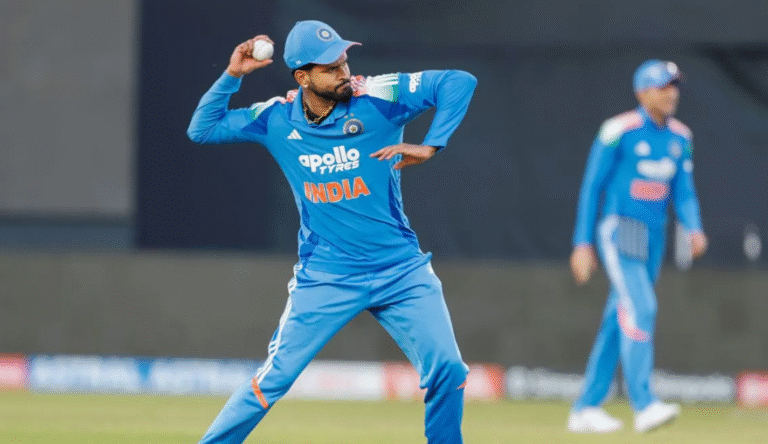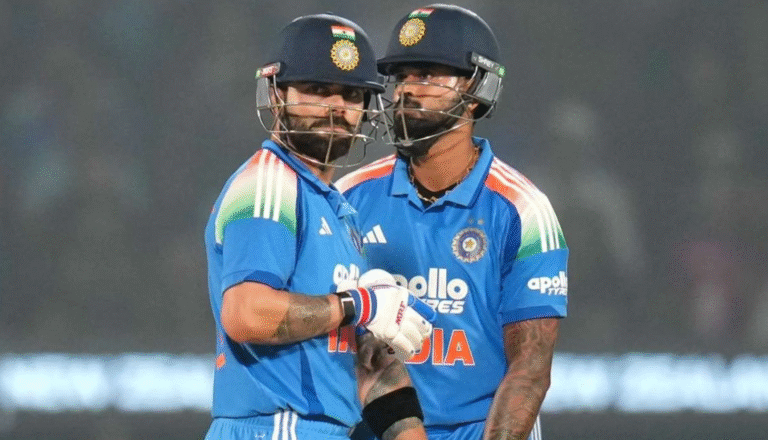
ECB – In a bold move to reshape the future of English domestic cricket, the England and Wales Cricket Board (ECB) has laid out a sweeping proposal to restructure its domestic season from 2026 onward. The aim: reduce player workload, enhance the quality of competition, and align the domestic calendar with modern demands.
Under the new plan, two major competitions—the County Championship and the T20 Blast—are set to undergo significant changes, including a reduction in the number of matches and a redesigned format structure to prevent fixture congestion and player burnout.
🏏 Reducing the Load: Championship Fixtures Cut
One of the most notable proposals is a reduction in County Championship matches from 14 to 12 per county. The ECB has put forward two format options for how the new season structure might look:
- Two Pools in Division One: A 12-team top division split into two pools of six, with each team playing 10 intra-group matches and two cross-group games. The group winners would then play a championship final in September to determine the titleholder. Relegation and promotion would occur between the divisions, with a playoff system introduced for Division Two.
- Traditional Two-Division System: A more streamlined approach with 10 teams in Division One and 8 in Division Two, each playing 12 matches. Promotion and relegation would be based on standings, though a playoff for Division Two promotion remains under consideration.
Although both formats remain on the table, the split pool with final model is reportedly gaining traction among stakeholders for its blend of competitiveness and scheduling flexibility.
🎯 T20 Blast and One-Day Cup Also in Focus
The popular T20 Blast will also be restructured, with counties playing 12 group-stage matches instead of 14. The competition will emphasize Thursday to Sunday evening fixtures, designed to maximize attendance and minimize player fatigue. The knockout stages will shift to September, reducing overlap with The Hundred, which dominates the August cricket window.
The One-Day Cup is expected to follow a dual-window format: an April group stage followed by a finals phase in late August. This scheduling prevents direct clashes with The Hundred and allows counties to better manage player availability.
🧠 Player Welfare a Driving Force
The proposed reforms are rooted in growing concerns over player welfare. A recent Professional Cricketers’ Association (PCA) survey revealed that 83% of players felt physically overworked, and 67% reported mental fatigue during the domestic season. Long travel, tight turnarounds, and overlapping tournaments have all contributed to a growing call for change.
Players and coaches have voiced concerns over rising injury risks and insufficient recovery time. The revised format seeks to address these issues by introducing rest periods and smarter fixture spacing.
🔍 Enhancing Quality and Experience
Beyond health and scheduling, the ECB is keen to elevate the quality of domestic cricket. A reduced number of fixtures is expected to sharpen competitiveness and increase the significance of each match. Proposals also include trials for Kookaburra balls, experimentation with spin-friendly pitches, and festival-style fixtures to provide varied playing conditions and improve player development.
Tim Bostock, Durham CEO and one of the architects of the review, believes the changes can “bring out the best in our players and our game.”

🗳️ Decision Time in July
A final decision is expected in July, with counties set to meet and either vote or agree through consensus. While the proposal needs a two-thirds majority to pass formally, ECB insiders say they may avoid a vote if widespread agreement is reached.
The 2026 season could mark the beginning of a new era for English domestic cricket—one that balances tradition with modern demands.
Bottom Line: The ECB’s bold move could reshape county cricket for the better—offering a tighter schedule, healthier players, and a more competitive edge. With the vote looming, all eyes are on the counties to determine the future of the English game.
Follow BiGG Sports News for sports-related stories





